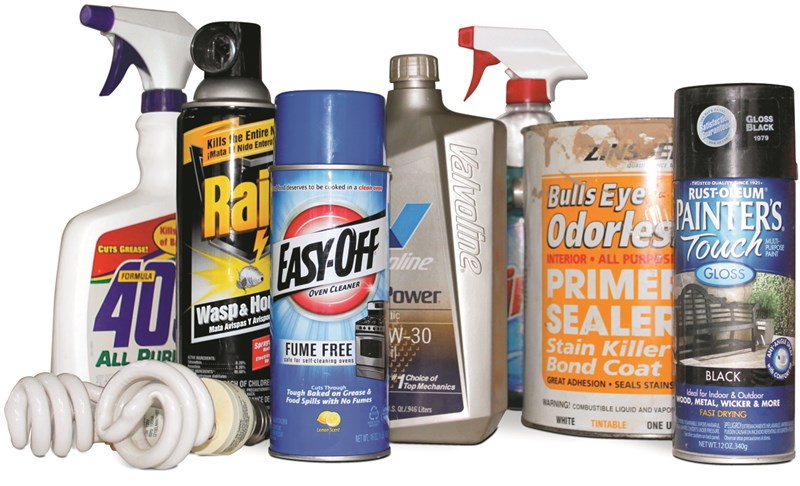Safely Dispose of Household Hazardous Waste

Prince William County Offers Year-Round Convenient HHW Disposal for Residents
Household hazardous waste (HHW) is a term used to describe various products and items used in and around our homes. These items may be found in the yard, garage, shed, and even inside the home. Household products that can catch fire, react, or explode under certain circumstances, or that are corrosive or toxic, are considered household hazardous waste. Products, such as paints, cleaners, oils, batteries, insecticides, drain cleaners, gasoline, fluorescent bulbs, and more, contain dangerous ingredients and require special disposal.
Improper disposal of these products can pollute the environment and threaten human health. Some HHW items can contaminate septic tanks or wastewater treatment systems if poured down drains or toilets, or cause physical injury to sanitation workers, equipment, and disposal facilities. If left around the house, they can also present hazards to children and pets.
Fortunately, Prince William County residents can dispose of these items at no extra cost at the Prince William County Landfill on Wednesdays and Saturdays from 9 a.m. to 5 p.m. County residents must stop at traffic control, verify residency with the attendant, and request a ticket before using this program. Household hazardous waste products ready for disposal should be sealed in their original labeled containers and placed in the trunk or truck bed, if possible. This is a drive-through service, and residents may bring up to 40 pounds solid or 15 gallons liquid per visit.
Residents may also bring up to three unwanted electronic items to the Electronic Recycling program, which is co-located and operated with the HHW program. E-waste can be dangerous when disposed of improperly due to toxic heavy metals such as mercury, lead, and corrosive chemicals. These substances can cause severe damage when disposed of in the trash and end up in landfills. Toxins can seep into nearby groundwater and cause serious harm to individuals and the environment.
Unlike e-waste and household hazardous waste, residents can bring some items that require special disposal to either of the Prince William County Solid Waste facilities on any day. Car batteries, oil, antifreeze, and household batteries can be brought to the Prince William County Landfill or the Compost Facility, located at 13000 Hansen Farm Road, during regular hours of operation. Both locations have a special self-service area to handle these items for recycling or disposal safely.
The Solid Waste Division provides a variety of services to make the safe and proper disposal of all unwanted household items easy and convenient for Prince William County residents. In most cases, these services are free of charge. Visit www.pwcva.gov/disposalguide for more information.